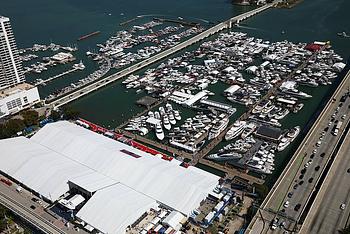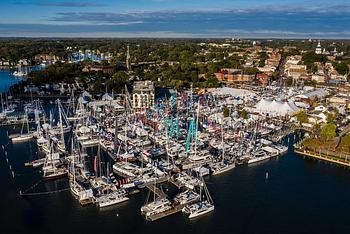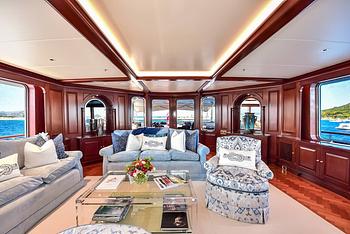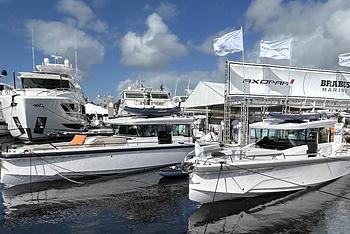Yacht charter holidays are one of the most unforgettable and special experiences you can have. Setting sail along some of the world’s most beautiful coastlines, dropping anchor in hidden bays and spending days soaking up the sun and splashing in the sea are where memories are made and stresses disappear.
If you’re new to chartering a yacht then it may seem like a daunting idea. Whether you know a little about boats, are a total pro with the certificates to prove it, or don’t know your aft from your bow, renting a boat can at first glance seem somewhat complex. From superyachts to compact catamarans, the different options for the style of yacht, budget, and destination are endless.
Here we answer the most frequently asked questions, so you will feel confident in booking your dream yacht charter.
1. What is a bareboat charter, and how does it work?
The term ‘bareboat charter’ is one you will come across when looking to charter a smaller-sized yacht and is essentially an uncrewed yacht provided without provisions. The idea is that you, as an experienced yachtsman or woman, are in complete control of the itinerary, the yacht, and your guests onboard. Bareboat charters are the perfect choice for those wanting to explore a region in more detail and who crave the freedom to be by themselves at sea. View all Bareboats for Charter across the world.
2. Can I charter a yacht if I have no sailing experience?
Absolutely. Instead of a bareboat charter, you would opt for a crewed charter or skippered charter. A crewed charter usually refers to a luxury yacht or superyacht, where a full crew takes care of the passengers during their time onboard. All meals, activities, itinerary, and safety aspects are handled by the captain and crew to fit with your detailed wishes. Depending on the size of the boat a crew can be made up of a captain and steward/ess or include more than a dozen members from engineers to deckhands and even watersports instructors and masseuses.
In contrast, a skippered charter consists of just the captain of the yacht. On smaller yachts and catamarans, your skipper will take charge of the vessel, recommend an itinerary, anchor, and manoeuvre the boat, and ensure everything is safe on board. Their job is to make your holiday as relaxing as possible and is the ideal choice for those with little sailing experience who would like to have a go under expert guidance. A factor to consider when planning your skippered charter is that the captain will of course require one of the berths (beds) on board as well as meals which you will provide.
3. What training and certification do I need to charter a bareboat?
This will depend both on the type of boat you are chartering and which country it is in as regulations vary. In general, however, you will need a Power Boat level 2 licence to bareboat charter a powerboat up to 10m in length, and if you are chartering a bareboat powerboat over 10m in length you will need a minimum of a Day Skipper/ICC or ASA 104 or equivalent. If you have a licence from your country (for example from the British RYA), you are usually able to apply for an ICC and your broker can talk you through doing that.
The certifications for sailing yachts are a little more complex depending on the country you will be sailing in. Day Skipper licences are required for countries including Spain, Greece, Italy, Croatia, Turkey, Thailand, and Australia, while other countries such as France, the Caribbean, the Bahamas, Mexico, Belize, New Caledonia, and Tahiti will allow you to sail a yacht with proven experience and competence. Having said that, charter companies and yacht owners may ask, for insurance, purposes, that you show some form of formal training.
4. How many people can accompany me on a yacht charter?
While the number of berths and cabins that you have on your chosen yacht will dictate how many guests can join you on your yacht charter, a maximum of 12 passengers is allowed (this excludes crew on a crewed yacht but includes the captain on a skippered yacht). This is an International Marine regulation. For a ship to be able to carry more than 12 passengers it has to be registered as a passenger ship and comply with the SOLAS Convention (Safety of Life at Sea) set out by the IMO (International Maritime Organisation). The vast majority of charter yachts won’t be registered as passenger's vessels, so you will need to plan for a total of 12 lucky friends and family to come with you on your yacht.
5. Is there a set itinerary I have to use?
No, not at all. One of the best things about chartering a yacht is that you have the freedom to visit the places that interest you. Long before your departure date, the charter company will ask you to complete a detailed questionnaire, covering everything from the activities you would like to do to the food and wine you would like onboard and the destinations you would like to visit. Together with the management company or private skipper, you will come up with an itinerary that suits you and your travelling companions.
6. Is the price for the yacht charter the final price I will pay?
For a bareboat charter, the answer will usually be yes, as you will supply your own provisions whilst on board. However, a crewed or skippered charter may have varying costs depending on your itinerary and wishes. Costs are very transparent though, and all within your control, and there will be no nasty surprises at the end of the charter.
With regards to sailing yachts, the fee usually covers the boat, a full tank of fuel, the crew onboard, and any moorings fees. As personal preference will play such a big role in the food and drink provided, an APA (Advanced Provisioning Allowance) system is commonly used. If you are chartering a skippered yacht, then you may be provisioning yourself and your mooring fees will depend on the itinerary you choose. Motorboats are slightly different because they use more fuel, and the final cost will depend on your itinerary and how much fuel you use, as well as the provisioning and mooring fees mentioned above.
7. What is the APA and how does it work?
The APA (Advance Provisioning Allowance) is essentially an account that the captain uses to pay for provisions you have specified. These include fuel, food, and mooring/port fees. It is common for a percentage of the base charter price to be requested for the APA (20-25% on sailing yachts and 30-35% on motorboats) and for the captain to keep a careful account of everything that has been spent from it. You are welcome to see your APA account at any time so you can keep track of what you are spending. At the end of the charter, you will be provided with a complete account of your expenditures and any surplus amounts are refunded to you.
8. Do I need to leave a tip?
This is completely discretionary, but it is common to leave between 5% and 15% of the total charter amount on a crewed yacht. In the Mediterranean tips tend to be at the lower end of that spectrum, and at the higher end in the United States and the Caribbean. On a crewed yacht, the captain will divide the tip between all crew members so you don’t have to tip individually.
Rightboat.com have hundreds of yachts of all styles, sizes, and budgets available for charter all over the world. Browse your top destinations and get in touch with brokers and private owners and start planning your dream yacht charter.
You May Also like ...
1. BVI Charter and the must visit Islands
3. Charter Greece Beautiful Places
5. Must Visit Croatian Destinations
6. Charter Antigua the True Gem of Yacht Chartering in the Caribbean




